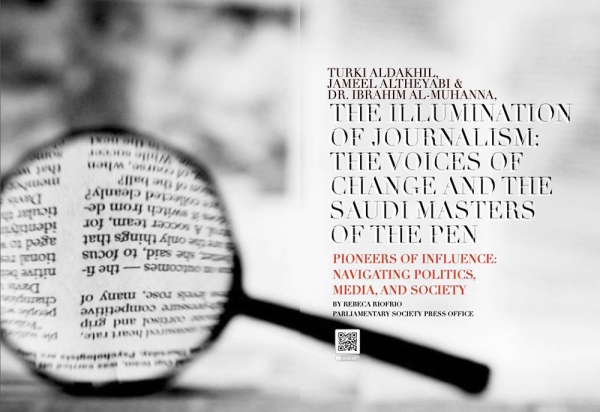
few months ago, when the rules had been sufficiently relaxed to allow friends to sit together outside, Liz Maguire had coffee with a woman she had never met. The pair had already been communicating for months, and quickly fell into easy conversation. Later on, this woman tweeted about their meeting, to which another woman replied: “You met Liz Maguire? As in the Liz Maguire?”.
The Liz Maguire is a 27-year-old American expat living in Dublin. Though undoubtedly a celebrity in her chosen field, she is not a professional, but that is simply because she is not paid to do what she loves, which is to write letters to strangers.
At last count, Maguire had 88 pen pals on the go, scattered throughout Europe, Canada, the US and Singapore. She keeps track of their correspondence using a binder system sorted by month. She also collects historical letters, which she keeps in folders. Speaking to me over Zoom, she leans forward to reveal a tall white shelving unit groaning under their combined weight. If that wasn’t enough, in January she started sending birthday cards to strangers, too. By mid-February, she had already sent 60. “People have messaged me to say that my birthday card was only the second acknowledgement of the day they had.”
Pen-palling is “an endurance sport”, says Maguire, who on the morning we speak has sent seven handwritten letters. “Evenings and weekends are my busiest time. Then, if I apply myself, my hand can get about five or six four-pagers out. So that’s 25 pages a day. That’s a lot – especially as our generation aren’t usually able to write like this.” As a millennial also weaned on word processors, I nod along.
To write in that quantity, you need the right pen, Maguire explains. She prefers rollerballs (cheap, less smudging), which bear the names of various corporate venues possibly related to her marketing day job. “To me, the physical act of writing a letter is a creative space away from work,” says Maguire. It is also a necessary one, given how hard it is to meet new people right now. “It is strange, how you learn to communicate almost entirely through phone or email, how deeply impersonal that is.”
Like many pen-pallers, she won’t divulge much about her correspondents (this seems to be a code of honour among everyone I speak to), but “connection” is at the heart of what she does. Maguire and her pen pals share stories, thoughts, books, Post-it notes, stickers and poetry. It’s upbeat stuff; the virus knits them together, yet is rarely mentioned.
The pandemic has been good for pen pals. Before 2020, written correspondence was as good as dead; what the telephone had weakened, the internet finished off. Yet a year on, the very thing that promised to broaden our world and nourish connection has left us feeling more isolated. My own feelings towards my phone have changed radically. WhatsApp is good for gossip, FaceTime for countering family alienation and Skype for when all else fails. Email is invaluable but there is something about the immediacy that crushes any thoughtfulness or intimacy. Phone calls are wonderful, but once you hang up, that’s it, you cannot hold them in your hands or go over them again.
Letter-writing feels like a solution, though with little to do during lockdowns, there may have seemed little to write about. But letters are good for us – humans thrive on activity and connectivity, and feel thwarted in the absence of those things. Letters offer a reprieve from the sameyness of lockdown, which made us simultaneously time rich and connection poor.
During the pandemic, letters have become more than simply a means of connection; they are first-person accounts of history as it unfolds, says David Russell, an English literature professor at the University of Oxford. “Letter-writing puts you into a speculative mode. You don’t have immediate access to the other person’s situation, and that produces great pieces of writing, which is why some of the best essays in literature start as letters.” Without facial expressions, intonation and gesticulation, the medium becomes the message. “Emails are immediate and instrumental. They have the strange effect of flattening the information they carry,” he says.
For my generation, writing to pen pals was part of growing up. I was ghosted by my first and only correspondent, possibly because I sent him a card covered with lipstick kisses. I was eight. But I still remember the visceral thrill of receiving a letter about what he’d seen on He-Man or Live & Kicking. After that, I mostly wrote to my family. Separated for several reasons (including divorce), my mother and I would write each other long letters. An artist, she would paint watercolour ducks on hers, and I would cry reading them, usually smudging the ducks. Later, I wrote to boyfriends intermittently, but I hadn’t written a proper letter until last August when my mother died during the first wave of the pandemic.
She didn’t die of Covid, but we have since learned that the virus complicated things. Mourning has been transformed by the pandemic, we all know that, but it still horrifies me to think of her death as a 2020 plot twist, a data point. All the things that make death vaguely manageable were out of reach – the external help, the care, a bearable funeral where people didn’t have to wear masks and which wasn’t indecently stripped back. She got sick when I was in labour and died 14 months later. Time prepares you for death, but it does not soften the loss. I have learned that it gets harder as time goes on, and that isolation has a way of sharpening the pain. Put simply, stuck at home, there is no new way to express or explore it.
On the days I feel sad, I have no one to talk to except my partner. Grief is not something you proffer in a text. I tried posting something on Instagram, but as a medium for loss on that scale, I found it almost insulting. As one cousin said in his letter to me, to write on paper felt correct, and true. From the paper, to the stains and the handwriting, it is impossible to send an impersonal letter.
My own letters started as thank yous in the weeks after the funeral. I would reply to texts late at night so as to prevent a back and forth, but on paper, words coiled out of me. Thank yous for the flowers. For the frozen meals. For the cards. For being part of my mother’s life, or even mine. Then I started sending cards to people I didn’t know. Not strangers, but cousins, my mother’s childhood friends that I had only just heard about.
In the 1970s, my mother spent several months in Assam meeting our Indian family and while she was there, wrote a series of letters to her mother. These letters became a sort of journal, and in her dying months, she typed them up. After she died, I sent them to her family. Letters within letters. While others stockpiled rice, I stockpiled artists’ notecards (my favourites are by Mary Fedden, Barbara Rae and Norman Ackroyd). Writing was a way of converting my sadness into gratitude, of connecting with her lost life.
For Najmeh Modarres, 37, letter-writing was an act of memorialisation prompted by an earlier health crisis. In 2015, she was working as a global health researcher based in Sierra Leone. She had been due to return to the UK in the spring when news that Ebola, the virus that had gripped the west coast of Africa, was spiking again. Some foreign workers got out but, eager to help, Modarres found work as an Ebola research manager. Sierra Leone had been the hardest-hit country, and had already implemented several lockdowns. Her friends and family thought she was crazy. “No one would dare come to west Africa at that point,” she says. Soon enough, the capital Freetown found itself in enforced isolation, its once-bustling streets now those of a ghost town. Afraid, isolated and disconnected from her family, Modarres began writing to strangers.
In between lockdowns, she had been making paintings of the city’s board houses, or “den ol bode house”, in the local Krio language. These wooden dwellings were being replaced by large concrete developments, and Modarres wanted to document them before they disappeared. Cloistered in her rooms, she posted her pictures to Instagram and a Sierra Leone Facebook group, asking if anyone wanted to receive one and perhaps, she added tentatively, become a pen pal. In the end, she sent out around 60 paintings.
“Due to inconsistent internet, lack of electricity, and the need for a bit of mindfulness, it just made sense to sit and write or draw away on a piece of paper,” she says. The press was reporting one thing, but she wanted to show “this beautiful, interesting, overlooked city to the world”. Replies came piecemeal, mainly from people who knew the country, or had visited. One was an architecture student in Cambridge; another an anthropology professor from Soas University of London, whose research she admired. One, a volunteer with the Peace Corps whose handwritten letters from the 1970s she had found on Flickr, she tracked down herself, never expecting a response. Then, several months later, she heard back. Delighted, the pair struck up a correspondence.
For Modarres, sending lockdown postcards became a tonic, a reprieve from the consuming anxiety of Ebola. She also liked to imagine the 15-day voyage each postcard took, the plane journeys, how many hands each one had passed through.
There is some confusion over the origins of the phrase “pen pal”, but the Student Letter Exchange, launched in 1936 by a teacher in the US keen to broaden the global and cultural horizons of his students, probably cemented the concept. In 1964 Parker Pen launched a scheme using computers to pair international pen pals at the New York World Fair, promoting it with a crew of hostesses dubbed “Penettes”. Since then, pen-pal schemes have been set up at prisons, care homes and among cancer sufferers, primarily to tackle loneliness.
“It’s not easy finding people,” says prolific pen-paller Maguire. “I tried to solicit some on social media ages ago but there is a hesitancy, naturally, to give out your details on the internet.” Many of her pen pals came through a new online scheme called Penpalooza, set up by the writer Rachel Syme last March (Maguire now helps her with the admin). By January, the number of users had grown to 10,000. “This situation is global, it’s real, it’s scary,” says Maguire. “People are home alone, it’s all so isolating, so the idea that I can reach out to someone is appealing.” The author Iris Murdoch wrote in one of her many letters that they “should aspire to the condition of talk. Say the first thing that comes into your head.” Jill, 56, from Hertford, has never met her pen pal Sarah, but their correspondence follows a similar mantra. “I know so little about Sarah, about who is around her, so we stick to what we do know or whatever comes into my head,” she says.
Introduced by a friend who runs a charity called From Me To You that pairs pen pals with cancer sufferers, all Jill knows is that Sarah lives alone, by the sea, and has an aggressive form of cancer. “We don’t go deep with illness. When something is so completely defining you don’t want to go on about it,” she says. Instead, their letters take a gentler shape. “I work on a care farm [a farm that helps with social and educational care services] so I’m fortunate to have a catalogue of stories from that. Farms lend themselves to lighter moments so I’ll usually say, ‘Today I planted a row of carrots,’ or ‘My cat threw up on my bed.’” Sometimes, Jill sends photo collages, face masks or lip balm. They share an exercise book, which they take turns to write in, posting the book back and forth rather than writing paper.
Jill writes because she believes family support was key to her survival after having cancer five years ago. “I simply cannot imagine going through treatment alone, so if I can let someone know that they still matter, even if it’s a faceless somebody, that is the catalyst.” Letters feel appropriate, less intrusive than a text. “It’s very easy to WhatsApp without thinking, without feeling. But to have something to hold, to look at – it’s very important when you’re alone.” Jill plans to meet up with Sarah when she’s allowed. “I recently sent a photo of an empty bench and said, ‘One day we’ll be drinking tea here, laughing about all this, you’ll see.”
Modarres started writing again last March. “I felt more disconnected than ever from family and friends, but perhaps my time in Sierra Leone prepared me for the current pandemic,” she says. Now living in Edinburgh, where she has been home-schooling two small children, she tends to send her letters to family and friends.
For Maguire, though, nothing quite compares to exchanging letters with someone you’ve never met. “There’s something incredibly vindicating about a complete and total stranger telling you: ‘Hey, it’s OK. It’s all going to be OK.’ In the act of telling one another that, I believe that we tell ourselves that as well.”












